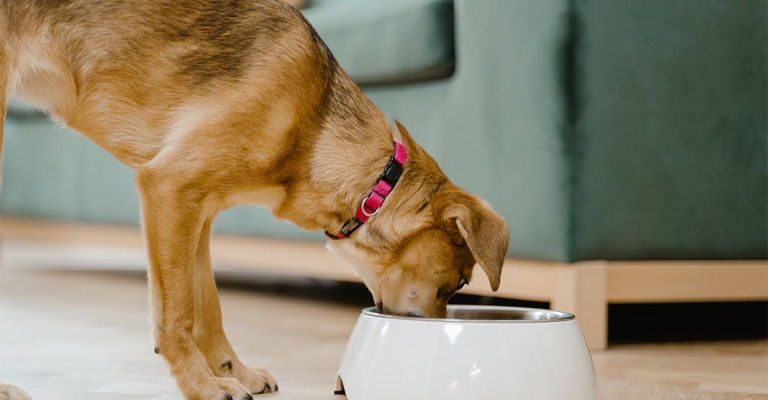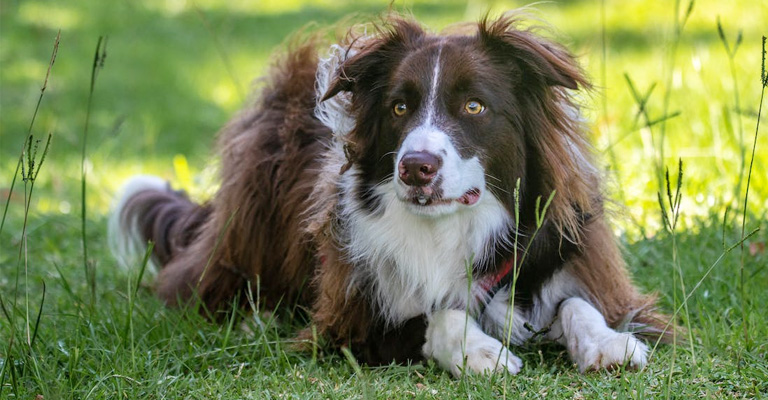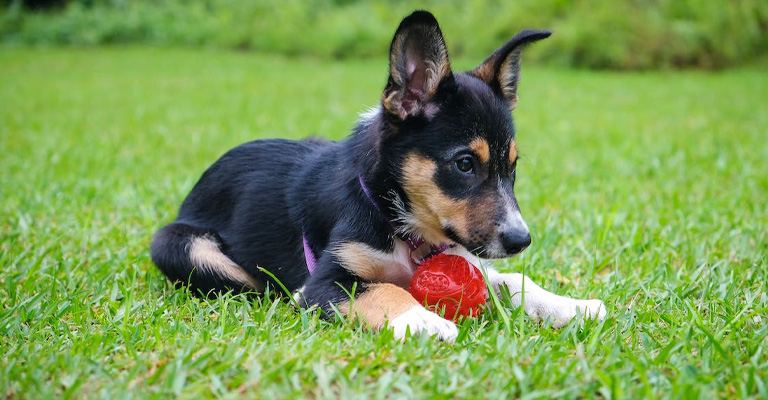Dogs are known for their curious and sometimes peculiar behaviors, and one such behavior that often leaves pet owners puzzled is their tendency to eat bird poop.
While it may seem unappetizing to us, dogs seem to find something intriguing about those little droppings left behind by our feathered friends.
But why do dogs eat bird poop? In this article, we delve into the reasons behind this behavior, exploring both instinctual and behavioral factors that contribute to a dog’s fascination with bird poop.
From their scavenging instincts to potential nutritional benefits, we unravel the mystery behind why dogs can’t resist the temptation of a little avian delicacy. So, let’s dig into the world of dogs and their peculiar taste for bird poop.

Why Do Dogs Eat Bird Poop?
Dogs have a peculiar habit of eating bird poop, much to the dismay of their owners. Let’s explore the various factors that contribute to this unusual habit and shed light on the possible explanations behind it.
Nutritional Instincts
One possible reason why dogs eat bird poop is rooted in their ancestral instincts. Dogs are descendants of wolves, who were opportunistic scavengers. In the wild, wolves would consume the remains of other animals, including feces, to obtain essential nutrients.
This behavior has been passed down through generations, and some dogs may still exhibit this instinctual drive to seek out additional sources of nutrition.
Attraction to Odor
Bird droppings have a distinct odor that can be appealing to dogs. Dogs have a highly developed sense of smell, and they are naturally attracted to strong scents. The pungent smell of bird poop may trigger their curiosity and entice them to investigate and consume it.
This behavior is similar to how dogs are drawn to other strong-smelling substances, such as garbage or animal waste.
Coprophagia
Coprophagia is a term used to describe the behavior of animals consuming feces. While it may seem repulsive to humans, coprophagia is relatively common among dogs. Some dogs engage in this behavior due to a variety of reasons, including boredom, anxiety, or a lack of proper nutrition.
Eating bird poop may be an extension of this behavior, as dogs are attracted to the scent and taste of feces in general.
Social Learning
Dogs are highly social animals and often learn behaviors from observing other dogs. If a dog sees another dog eating bird poop, it may imitate the behavior out of curiosity or a desire to conform.
This social learning aspect can contribute to the spread of the habit within a community of dogs. Also, if a dog receives attention or praise from its owner for engaging in this behavior, it may reinforce the habit and continue doing so.
Seeking Attention
Dogs are known to seek attention from their owners, even if it means engaging in undesirable behaviors. Eating bird poop can be a way for dogs to gain attention, as owners often react strongly to this behavior.
Dogs may interpret the scolding or attempts to stop them as a form of interaction, which can inadvertently reinforce the habit.
This attention-seeking behavior can be particularly prevalent in dogs that lack mental stimulation or are left alone for extended periods.
Taste and Texture
While the reasons mentioned above focus on instinctual and behavioral factors, it’s important to acknowledge that some dogs simply find the taste and texture of bird poop appealing.
Dogs have different preferences when it comes to food, and what may seem unappetizing to us might be enticing to them.
The combination of the unique flavors and textures found in bird droppings may be appealing to certain dogs, leading them to consume it.
Although it may be unpleasant for dog owners, the habit of eating bird poop can be attributed to a combination of factors such as nutritional instincts, attraction to odor, coprophagia, social learning, seeking attention, and individual taste preferences.
Is Eating Bird Poop Bad for Dogs?

Yes, eating bird poop can be bad for dogs. There are several reasons why it is considered unhealthy:
Bacterial and Parasitic Infections
Bird droppings can contain harmful bacteria, such as Salmonella or E. coli, as well as parasites like worms. Ingesting these pathogens can lead to gastrointestinal issues, including vomiting, diarrhea, and stomach upset.
Toxic Substances
Birds may consume berries, seeds, or insects that are toxic to dogs. When a dog eats bird poop, it may also ingest these harmful substances, which can cause poisoning and other health complications.
Spread of Diseases
Birds can carry various diseases, such as avian influenza or West Nile virus. If a dog consumes bird poop infected with these diseases, it can potentially contract them and become ill.
Nutritional Imbalance
While bird droppings may contain some nutrients, they are not a balanced or appropriate source of nutrition for dogs. Relying on bird poop as a food source can lead to deficiencies and imbalances in a dog’s diet.
Intestinal Blockage
Bird droppings may contain indigestible materials, such as feathers or small bones. If a dog consumes a large amount of bird poop or ingests these non-digestible components, it can lead to intestinal blockage, which may require surgical intervention to remove.
Allergic Reactions
Some dogs may have allergies or sensitivities to certain components present in bird droppings. Ingesting bird poop can trigger allergic reactions, resulting in symptoms like itching, skin rashes, or respiratory issues.
Transmission of Zoonotic Diseases
Zoonotic diseases are illnesses that can be transmitted between animals and humans. If a dog consumes bird poop infected with zoonotic pathogens, it can potentially pass these diseases to humans through close contact or by contaminating surfaces in the household.
Behavioral Issues
Constantly seeking out and consuming bird poop can become an obsessive behavior for some dogs. This behavior can interfere with their normal eating habits, social interactions, and overall well-being. It may also lead to increased anxiety or compulsive behaviors.
Dental Problems
Bird droppings may contain gritty particles or small debris that can get stuck in a dog’s teeth. Over time, this can contribute to dental issues such as plaque buildup, tooth decay, or gum disease.
How to Stop My Dog from Eating Bird Poop?

If you want to stop your dog from eating bird poop, here are some strategies you can try:
Supervision and Leash Control
Keep a close eye on your dog during walks or outdoor activities. Use a leash to maintain control and prevent them from reaching bird droppings.
Redirect their attention to other activities or objects, such as playing with a toy or practicing obedience commands.
“Leave It” Command
Teach your dog a reliable “leave it” command. Start by using treats or toys to practice the command indoors, gradually progressing to outdoor environments.
When your dog shows interest in bird poop, give the “leave it” command and reward them for complying with a high-value treat or praise.
Positive Reinforcement
Reward your dog for appropriate behavior. When they ignore bird droppings or respond to the “leave it” command, praise and reward them with treats or verbal praise.
Positive reinforcement helps reinforce desired behaviors and encourages your dog to focus on you rather than the bird poop.
Environmental Management
Modify the environment to reduce access to bird droppings. If you have a backyard, consider using bird deterrents or installing barriers to prevent birds from frequenting the area.
In public spaces, avoid areas with high bird activity or choose alternative routes for walks.
Proper Nutrition and Mental Stimulation
Ensure your dog is receiving a balanced and nutritious diet. A well-fed dog is less likely to engage in coprophagia, including eating bird poop.
Additionally, provide mental stimulation through interactive toys, puzzle feeders, or engaging training sessions to keep your dog mentally satisfied and less inclined to seek out inappropriate items.
Consistency and Patience
Changing a behavior takes time and consistency. Be patient with your dog and remain consistent in your training efforts. Reinforce positive behaviors consistently and avoid inadvertently rewarding or reinforcing the behavior of eating bird poop.
If the behavior persists despite your efforts, it is advisable to consult with a professional dog trainer or behaviorist. They can provide personalized guidance and develop a tailored plan to address the specific needs of your dog.
FAQs
While not all dogs engage in this behavior, it is relatively common for dogs to eat bird poop.
This behavior can stem from various factors, including instinctual drives, attraction to odor, social learning, and seeking attention.
Yes, eating bird poop can make dogs sick. Bird droppings can contain harmful bacteria, parasites, and toxic substances.
Ingesting these can lead to gastrointestinal issues, bacterial or parasitic infections, poisoning, and the spread of diseases.
To prevent your dog from eating bird poop, you can supervise them closely during outdoor activities, use leash control, and teach them a reliable “leave it” command. Positive reinforcement, proper nutrition, mental stimulation, and environmental management can also help discourage this behavior.
If your dog eats bird poop, monitor them closely for any signs of illness or discomfort. If they show symptoms such as vomiting, diarrhea, or lethargy, contact your veterinarian for guidance.
While there isn’t a specific medical condition that directly causes dogs to eat bird poop, certain underlying factors such as nutritional deficiencies, gastrointestinal issues, or compulsive behaviors can contribute to coprophagia (the consumption of feces).
Final Words
While the exact reasons why dogs eat bird poop may vary from one canine to another, it is important to note that this behavior is not without its risks.
Bird droppings can contain harmful bacteria, parasites, and even toxins, which can pose health hazards to our furry companions.
As responsible pet owners, it is crucial to discourage this behavior and ensure that our dogs have access to a balanced and nutritious diet.
Regular veterinary check-ups, proper training, and providing engaging alternatives for our dogs to satisfy their natural instincts can help redirect their attention away from bird poop.
By understanding the underlying motivations behind this behavior and taking appropriate measures, we can keep our canine friends safe, healthy, and free from their curious fascination with bird droppings.